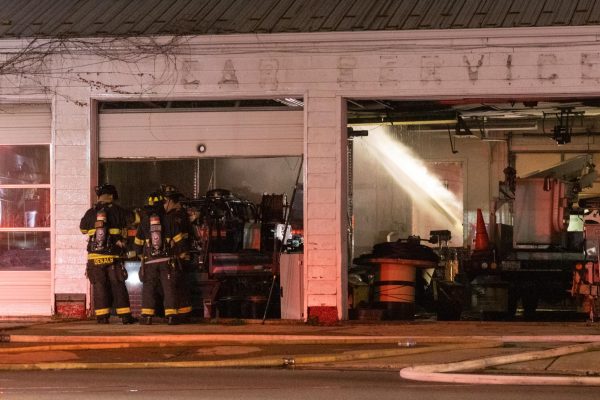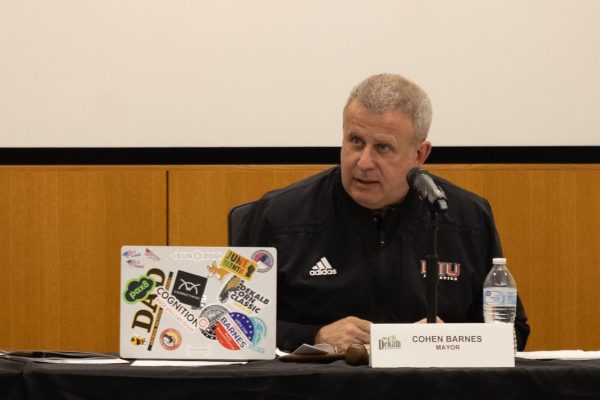Local dialysis proposed
July 5, 1989
Plans to establish a satellite dialysis center in DeKalb for local kidney patients await approval from the Illinois State of Health Facilities Planning Board.
Wayne Fesler, president of Kishwaukee Community Hospital, said he knows of at least 21 local kidney patients who now must travel to Rockford to receive dialysis treatment.
Officials at Rockford Memorial Hospital, where the main dialysis center is located, discovered the need to establish a satellite unit in DeKalb, Fesler said. He and RMH’s medical director both feel that more than enough patients would benefit from a local facility to establish the unit, he said.
The decision whether to establish the facility is pending approval from the Illinois State Health Facilities Planning Board, which will issue a Certificate of Need if hospital officials from both KCH and RMH are “able to justify it (the need) by showing the volume of patients who would benefit.”
As of yet, hospital officials “need to find out the magic number (of county residents in support of the proposal) to meet the criteria of the board,” Fesler said.
A meeting might be arranged for hospital officials to talk with State Rep. John Countryman, R-DeKalb, and State Sen. Patrick Welch, D-Peru, about the issue, but Fesler wants to gain as much information as possible first. He believes they would favor the idea in light of the fact, “very few (citizens) would be against it.”
Establishing the local facility could “improve the quality of life for many people,” Fesler said. Patients would be able to maintain local jobs if they did not have to take so much time commuting for treatment, he said, adding that commuting time also cuts into the lives of family members or friends who must transport dialysis patients. The commute generally amounts to $4,000 to $5,000 a year in travel expenses, he said.
The patients who would receive treatment at the new facility are mostly “of the chronic variety,” Fesler said. Those people usually require treatment three times a week, he said.
If approved, the facility will be located adjacent to KCH and will “start out with three or four stations,” Fesler said. It will be available in several shifts, including afternoons and evenings, so patients can go for treatment after work,” he said.
Only patients considered stable would use the facility, while acute care patients would continue receiving treatment at RMH, a press release states.
The unit will be staffed entirely by registered nurses under the supervision of the RMH nephrology medical staff and KCH will provide laboratory testing, supplies and ancillary services to the center, a press release states.
Fesler pointed out that younger people usually do not require dialysis treatment, but with DeKalb’s large student population, some might benefit from a local facility. “There might be patients who want to go to Northern … but because of the commute (for treatment) can’t,” Fesler said.
Contributing further to the need for a local center are the “demographics of the area” as well as an “expanding older population,” he said.
“The population (of those who would benefit from a local facility) is definately there,” Fesler said. “To me, it doesn’t really make any sense to make people suffer any more than they have to,” he said. “It makes me mad.”












